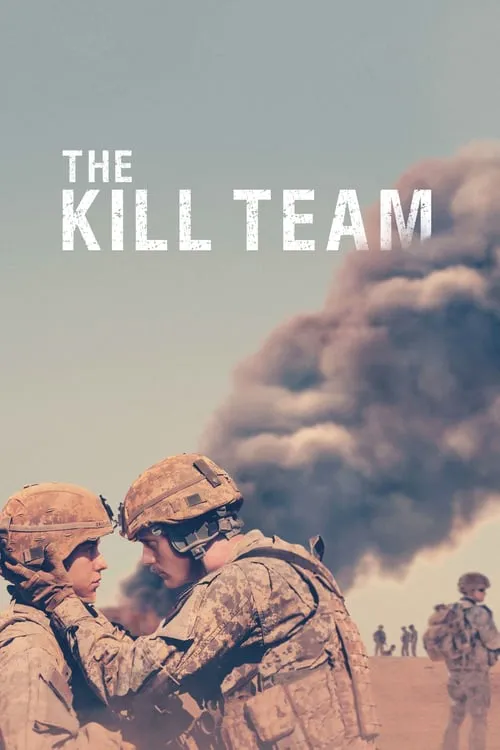The Kill Team

Plot
The Kill Team, directed by Dan Krauss, is a gripping and thought-provoking drama that delves into the dark side of the US military's presence in Afghanistan. The film is based on a real-life incident from 2010, where US soldiers were accused of committing war crimes, and it explores the complexities of war and the psychological toll it takes on those deployed. The movie follows the story of Andrew Briggman (played by Nat Wolff), a young and idealistic soldier who enlists in the US army to serve his country in Afghanistan. Initially, Andrew is excited to serve his duty and make a difference in the world. However, as he arrives in-country and is introduced to his unit, he quickly realizes that the reality of war is far more brutal and chaotic than he anticipated. Andrew's platoon is led by the ruthless and sadistic Sergeant Deeks (played by Alex Neustaedter), who seems to take great pleasure in pushing his men to their limits. The sergeant's aggressive tactics and disregard for human life are evident from the start, and Andrew begins to question the orders he's given and the actions of his fellow soldiers. One fateful night, Andrew witnesses his comrades killing innocent civilians on the orders of Sergeant Deeks. The atrocity shakes Andrew to his core, and he is torn between his loyalty to his fellow soldiers and his duty to report the crime. As he grapples with this moral dilemma, Andrew realizes that the heavily-armed and increasingly-violent platoon has become a ticking time bomb, and he fears that he'll be the next target if he doesn't report them. The film's title, The Kill Team, refers to the informal name that the platoon has adopted, which seems to reflect their growing isolation and detachment from the rest of the world. The team has become a law unto themselves, operating outside the boundaries of military protocol and disregarding the lives of innocent civilians. As Andrew navigates this treacherous landscape, he begins to experience the effects of the psychological toll of war. The stress and pressure of serving in a combat zone, combined with the trauma of witnessing war crimes, take a toll on his mental health. He becomes increasingly paranoid, questioning the loyalty of his fellow soldiers and wondering if he'll be next to be targeted. The supporting cast, including Alex Neustaedter as Sergeant Deeks and Owen Asztalos as Andrew's fellow soldier, add depth and complexity to the story. They convey the sense of camaraderie that exists among soldiers, as well as the fear and suspicion that grows when someone in their midst becomes a traitor. The film's cinematography captures the harsh realities of war, with desolate landscapes and the sounds of gunfire and chaos in the background. The production design effectively recreates the makeshift bases that the platoon inhabits, giving the audience a sense of the cramped and isolating living conditions that the soldiers endure. Overall, The Kill Team is a thought-provoking and disturbing exploration of the darker aspects of war. The film raises important questions about the psychological toll of conflict, the consequences of blind obedience, and the accountability of those in power. Through its gripping narrative and effective character development, The Kill Team delivers a powerful and memorable viewing experience that will leave audiences reflecting on the complexities of war and its human cost. Nat Wolff's performance as Andrew Briggman is particularly noteworthy, conveying the sense of confusion, fear, and disillusionment that grips him as he navigates the treacherous landscape of war. His character's journey is both heart-wrenching and thought-provoking, serving as a powerful reminder of the psychological toll that conflict can take on those who serve. As the story unfolds, Andrew finds himself in a desperate bid to survive and escape the clutches of his would-be killers. The tension builds to a thrilling climax, as Andrew uses all his wits and resourcefulness to evade his foes and bring the truth to light. Ultimately, The Kill Team is a film that challenges the viewer to confront the harsh realities of war and the complex moral dilemmas that it presents. It is a powerful and thought-provoking exploration of the human cost of conflict and a timely reminder of the importance of accountability and human rights in the face of chaos and destruction.
Reviews
Recommendations




